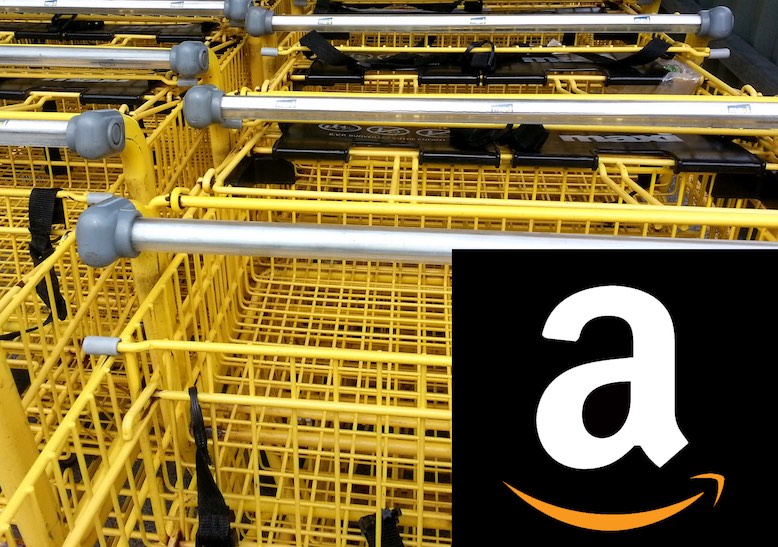Opinion: ‘Amazon Go’ can’t topple the grocery goliath
Just like they revolutionized the online shopping industry, Amazon wants to do the same for the grocery industry. Enter Amazon Go, a grocery store where shoppers can enter, pay, and exit without ever needing to dredge through another long checkout line. Customers can link their smartphones with a store’s network to pay wirelessly, leaving the days of waiting behind 10,000-year-old ladies who still write checks in the distant past. With a test store recently opening for Amazon employees in Seattle, Amazon plans to unveil the program to the public in the near future. Like the advent of self-checkout lines, many people believe Amazon Go’s “Just Walk Out” technology will drastically change the grocery store business model, rendering the traditional grocer archaic and obsolete.
Sure, this “Just Walk Out” concept looks good on paper, but will it completely shift the paradigm from a “wait in line for ten minutes” model to a “no wait” model on a larger scale? I don’t think so.
Call me biased — I work in the grocery industry. I’ve made a modest wage at the tiny Metropolitan Market chain for nearly 12 years, as have many of my colleagues. And no matter how much malice I might bear toward rabid consumerism — how much existential dread my long-term stint in retail brings about — I still believe in the positive impact of excellent customer service on shoppers everywhere. At my store, people will wait five extra minutes in line to be helped by a slow cashier who provides personal — and consistently excellent — customer service. To many, convenience is an afterthought compared to quality service.
However, while the power of quality attentiveness should not be underestimated, neither should the overwhelming power of convenience. Even if I don’t believe Amazon Go will ravage the grocery industry like a tsunami, a question remains: Do the customers want it?
In some way, yes. I’ll admit: When I have ten items or fewer at a store offering self-checkout, I will use it 99 percent of the time — especially if I’m in a hurry or haven’t yet consumed enough caffeine to interact with another human being. The anxiety about self-checkout kiosks replacing cashiers is not unfounded, but the technology is only efficient when orders are smaller in quantity. Self-checkout kiosks can’t efficiently replicate having a human cashier keying in and scanning your items, and they can’t organize your foodstuffs like the seasoned, Tetris-playing baggers standing nearby. Instead of wholly replacing the humble cashier-bagger experience, self-checkouts have integrated into the grocery umbrella as convenient companion pieces.
For more talk about technology versus customer service, let’s go back to Metropolitan Market, which provides experiences that self-checkouts and Amazon Go can’t possibly replicate. Founder Terry Halverson established Metropolitan Market on a set of customer-oriented principles rooted in product knowledge, excellent customer service and a unique mix of local and hard-to-find items. Buyers and department managers form tight relationships with distributors and brokers to sell and promote high-quality products. Even though the Metropolitan Market chain carries common staples sold for cheaper prices elsewhere, customers shop at these stores for a warm, friendly and intimate experience. Amazon Go customers will not find that same experience in an automated store.
How much Amazon Go makes waves in the grocery industry will depend on what they sell, as well as who will provide products to distribute in their stores. I envision their product selection emphasizing packaged foods, meal kits and a creative mix of high-end and conventional foods that caters largely to the fast-paced, bachelor-living, lunch rush type of crowd. With Amazon Go being geared for fast-paced and densely-populated environments, the lunch crowd may be a great niche, which would certainly take the pressure off local retailers for supporting the lunch rush. For people who are in a hurry to grab a quick bite and return to the office, Amazon Go may be a godsend.
I do believe Amazon Go represents some kind of future, but it won’t doom the future of the traditional retailer. Based on how Amazon currently describes these stores, their model is built entirely on the concept of convenience rather than pure-and-true customer service. Amazon Go will only replace the traditional supermarket if consumers begin prioritizing automated convenience over personalized service. Here’s to hoping human beings win out over machines.







